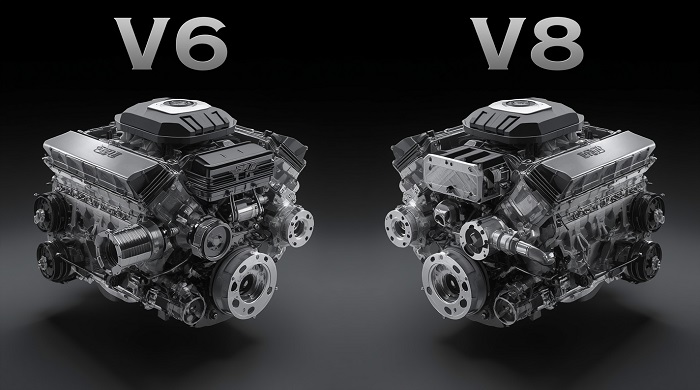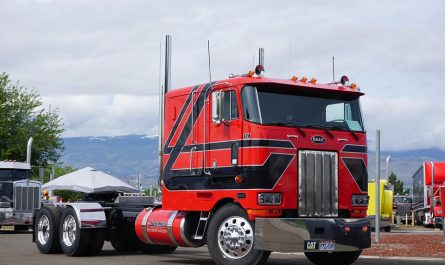Hi everyone, this is Lisa from The Savvy Professor. In today’s discussion, we’ll explore the differences between V6 and V8 engines and help you decide which one is better for your needs. Choosing the right engine is crucial because it affects power, fuel efficiency, and performance. By understanding how these engines differ, you can make a well-informed decision for your car or truck.

Key Differences Between V6 and V8 Engines
The main difference between a V6 and a V8 engine is the number of cylinders. A V6 engine has six cylinders, while a V8 engine has eight. This extra pair of cylinders in a V8 engine directly contributes to more power. This power is particularly useful for heavy-duty tasks such as towing or hauling. For instance, a pickup truck equipped with a V8 engine can tow a heavy trailer or carry large loads far more easily than a similar truck with a V6 engine.
Another major difference lies in the power output. V8 engines typically generate more power because the additional cylinders allow for more fuel to be burned. This results in higher horsepower and stronger acceleration. On the other hand, V6 engines have fewer cylinders, which limits their maximum power output. This difference is noticeable in sports cars, where a V8 engine can provide faster acceleration and higher top speeds compared to a V6 engine.
Fuel efficiency is also a key factor to consider. V6 engines tend to offer better fuel economy than V8 engines. With fewer cylinders, a V6 burns less fuel, leading to higher gas mileage. This makes V6 engines ideal for everyday driving, such as commuting to work or running errands. Meanwhile, V8 engines are less fuel-efficient due to their larger size and higher fuel consumption, making them better suited for tasks that require extra power rather than efficiency.
| Feature | V6 Engine | V8 Engine |
|---|---|---|
| Cylinders | 6 | 8 |
| Power Output | Moderate | High |
| Fuel Efficiency | Better | Lower |
| Ideal Use | Daily driving, commuting | Towing, hauling, high-performance cars |
Similarities Between V6 and V8 Engines
Even though V6 and V8 engines have several differences, they share some similarities. Both engines typically use fuel injection systems to deliver fuel to the cylinders efficiently. This system improves fuel efficiency and helps reduce emissions. Additionally, both engines have a similar lubrication system that uses engine oil to keep moving parts running smoothly and prevent wear and tear. These shared features ensure that, regardless of engine size, your vehicle operates reliably and efficiently.
Choosing Between a V6 and a V8 Engine
So, which engine is better: a V6 or a V8? The answer depends on your driving needs and preferences. If you prioritize fuel efficiency and balanced performance for daily use, a V6 engine is an excellent choice. It provides sufficient power for regular driving while keeping fuel consumption manageable. A sedan or compact SUV with a V6 engine offers good acceleration, smooth handling, and improved gas mileage compared to vehicles with a V8.
On the other hand, if you need more power, towing capacity, or high-speed performance, a V8 engine is the way to go. V8 engines excel in trucks, SUVs, and sports cars, where additional horsepower makes a real difference. However, this power comes with higher fuel consumption, so they are best suited for drivers who need performance over efficiency.
| Consideration | V6 Engine | V8 Engine |
|---|---|---|
| Power Needs | Moderate | High |
| Fuel Economy | High | Moderate to Low |
| Towing Capacity | Limited | Excellent |
| Best Use | Everyday driving, commuting | Heavy-duty work, sports cars |
Conclusion
In summary, choosing between a V6 and a V8 engine depends on how you plan to use your vehicle. V6 engines are ideal for drivers looking for fuel efficiency, reliable acceleration, and good overall performance for daily driving. V8 engines are better suited for those who require extra power, towing capability, and high-performance driving. Understanding these differences ensures you select the right engine for your needs, helping you enjoy a balance of performance, efficiency, and reliability.


